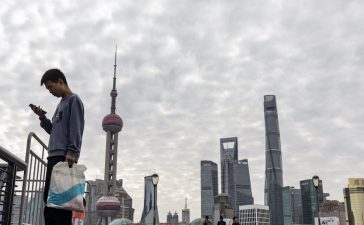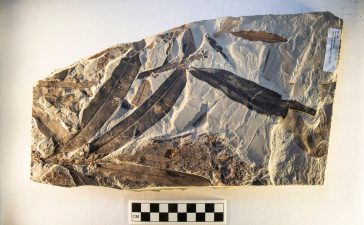Candidates to become Philadelphia’s 100th mayor have sounded much more interested in spending tech wealth than creating more of it. Trouble is, this city doesn’t have all that much of it.
In a heavily Democratic city with a closed primary, tomorrow’s primary election will likely decide who is inaugurated next January. It’s worth a review of where we sit for those who remain undecided and have a bent toward policy friendly to technology, entrepreneurship and innovation.
Like any big enough group of people, opinions vary among the tech set — which could include a startup founder in Old City, a software developer in Fishtown, a digital equity organizer in Germantown, an angel investor in Rittenhouse, a workforce training advocate in South Philly, a small business advisor in the Northeast and a lab tech in University City. But consider a composite of what a Philadelphia tech candidate might resemble: forward looking, efficiency minded, data centric and business friendly.
Between last week’s innovation-focused mayoral forum held during Philly Tech Week 2023 presented by Comcast and hosted by Black talk radio station WURD, Technical.ly’s candidate questionnaire, and our other reporting, this is a snapshot of what we know. For one, there’s no runaway candidate. Limited polling suggests it’s a tight race between five candidates, which makes for tricky dynamics. That will spread votes, which means your choice counts. Five candidates matter:
- Cherelle Parker — The former city councilwoman is likely the preferred candidate of Philadelphia’s Democratic party, garnering current Mayor Kenney’s vote. She proposes a dramatic expansion of city school hours, a $17.53 minimum wage and pursuing “a business friendly climate.”
- Helen Gym — The former city councilwoman and education activist held a rally Sunday headlined by national Democratic-Socialist stars US Sen. Bernie Sanders and Congressperson Alexandria Ocasio-Cortez. Gym proposes to boost job-training programs between unions and the School District of Philadelphia, and to prioritize the Black-focused economic development agency The Enterprise Center. She has held raucous protests in the state capital for greater education funding and outside Comcast headquarters railing against corporate greed. She’s opposed to the Sixers arena.
- Rebecca Rhynhart — The former city controller and investment banker is portrayed as a kind of technocratic extension of former Mayor Michael Nutter, under whom Rhynhart served. She proposes to reduce regulation, lower the wage tax, double the number of Black-owned businesses her Office of Economic Opportunity and to leverage federal dollars for career and technical education programs.
- Jeff Brown — The fourth-generation Philadelphia grocer has consistently referenced his business experience. He proposes a cabinet-level position for process improvement and technology and a 10-year incentive to attract businesses that will give 50% of the city’s economic benefit gained from the company back to the company. He has a minority stake in WURD, which the station has disclosed, among other Black-owned businesses, he said. Brown has said he’s supportive of the new Sixers arena.
- Allan Domb — The former city councilman and real estate entrepreneur could credibly claim to have the longest active presence within the region’s tech community, traveling with a contingent to SXSW in 2017 and donating his salary to pay for school laptops and other tech tools. He proposes to be the most transparent administration in the country, work to teach “financial literacy, tech and entrepreneurship in every grade.”
When asked at the Philly Tech Week forum about artificial intelligence, which is the subject of a globe-spanning research arms race, several candidates to lead our old regional city expressed interest in regulating it. How many had actually used the technology’s breakout-star tool, ChatGPT? Zero. Several hadn’t even heard of it, though Helen Gym promised she had been “reading” a lot about it.
Experienced advocates know it’s better to be unknown than misunderstood by policymakers. The concern, then, is that tech and entrepreneurship has gotten to the worst of both — known and misunderstood.
Each mayoral candidate routinely evokes a mainstay of today’s Democratic platitudes: “supporting Black and brown businesses,” without conveying much confidence that’s something they have any actual experience with. At last week’s forum, Domb offhandedly said that he would “look” at how the City of Philadelphia’s pension fund could be managed to benefit more Black and brown businesses — a policy worthy of a municipal bond trader’s scrutiny. Nearly all candidates last week cited The Enterprise Center, safe political territory, and many spoke of extending “grants” and adding further complexity to the City’s procurement process.
Whoever wins tomorrow ought not be fooled into believing technology and entrepreneurship are new conversations in Philadelphia.
Parker sensibly and rightly called out the mayor’s responsibility for considering cybersecurity — an easily overlooked but very real risk made all the more plausible after the City of Baltimore suffered a costly attack. Elsewhere, Gym has courted progressive voters, spooking a business class by backing legislation for a wealth tax — in 2019, she told an advocacy group that “capitalism is an immoral system.” All candidates use the word “vision” routinely.
No debate Philly is at a crossroads. The pandemic was brutal, and the current administration is flailing.
Still, Philadelphia’s next mayor will inherit very real initiatives started and led by very real stewards. The City’s stewardship of OpenDataPhilly.org continues. Its water and IT departments have developed strong reputations among technologists, aided by serious civil servants. The embattled Department of Commerce has spun out other sensible and low-budget programs — job quality and its Most Diverse Tech Hub Initiative, which engages business attraction and workforce teams, while also tapping the private sector. (Yes, full disclosure, even Technical.ly is involved.)
Philadelphia’s tech ecosystem is nearly two decades old. Programs are training city residents in basic coding, events help with access, and partnerships help connect to business resources. The private sector is doing meaningful work.
As ever, then, the point is whoever wins tomorrow ought not be fooled into believing technology and entrepreneurship are new conversations in Philadelphia. Ahead of a general election in the fall nominally against Republican David Oh, a former city councilman who has long engaged tech talent and business initiatives, a listening tour is in order. They’d learn how established yet underperforming the city’s tech economy is. Perhaps try an AI tool or two.
It means the world that the tech business mayoral forum came from WURD. “The city is on fire, and not in the good way,” leader Sara Lomax Reese said. Technology and entrepreneurship must be part of our future: “We need leadership.”
Every Voice, Every Vote
Philly Tech Week
Subscribe
Knowledge is power!
Subscribe for free today and stay up to date with news and tips you need to grow your career and connect with our vibrant tech community.
Technically Media









